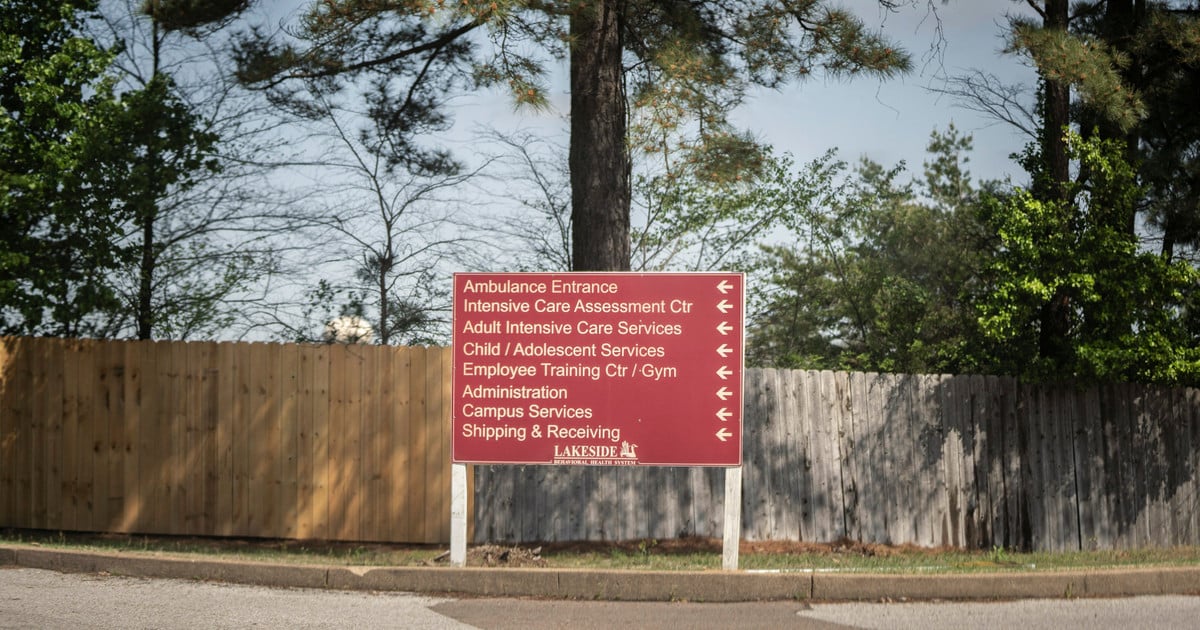Shields and other researchers have repeatedly flagged concerns about lower quality of care at mental health facilities owned by for-profit corporations, in part due to efforts to cut staff and reduce costs. Companies have defended the quality of care they provide.
ProPublica reported Monday that over 90 psychiatric hospitals across the country have violated the Emergency Medical Treatment and Labor Act in the past 15 years. The vast majority of them — around 80% — are owned by for-profit corporations.
Yet only a handful have faced any consequences from either the U.S. Centers for Medicare and Medicaid Services or the inspector general of the Department of Health and Human Services, both of which are responsible for regulating the law. In the rare cases when hospitals have faced fines, the penalties have been trivial compared to the earnings of each for-profit hospital chain, the investigation found.
Companies have defended the quality of care they provide.
And so do staff that work at these hospitals to me online. They defend the for-profit hospital model, and simultaneously reveal how dire the working conditions are for providers and how poor the treatment conditions are for patients in these hospitals - even in the best examples.
I’m not anti-psychiatry, but I think the profit motive should stay the hell out of mental health treatment - especially inpatient stays. Mental health professionals dealing with conditions such as being understaffed, underfunded, overworked, abjectly and repeatedly traumatized by subsequent conditions, etc. does not create a proper care environment for healing.
The fast food model of mental health care that prioritizes stabilization over lasting relief and safety, foregoing true interventions in environment and the patient’s situation outside of inpatient stays, and the large amount of debt for-profit hospitals put patients in is unconscionable.
Where will the money come from if hospitals aren’t for-profit? Billionaires make money out of thin air - doctors/etc. should do the same by practicing… they are a net benefit on society.
We don’t have to repeat the days of state-run institutions - we can facilitate transparency and oversight, preserve human rights and increase patient-centered advocacy, and allow for outside, second opinions - among many other things to vastly improve the standard of care.
We don’t have to repeat the days of state-run institutions - we can facilitate transparency and oversight, preserve human rights and increase patient-centered advocacy, and allow for outside, second opinions - among many other things to vastly improve the standard of care.
Amen.
Removed by mod
What country are you from?
Pretty sure we already went through this Pele, I’m originally from the Seattle area, wrote on the board Beth’s.
Remember that?
Is this really your only response when your morality structure is challenged?
Just assume I must not be from here?
Oooooh yeaaaah, thanks for reminding me.
The non profit facilities aren’t any better unfortunately, ime. It makes sense tho- anyone who has any desire or willingness to work at a prison is likely to hold some pretty fucked up values
The non profit facilities aren’t any better unfortunately, imo. It makes sense tho- anyone who has any desire or willingness to work at a prison is likely to hold some pretty fucked up values
We definitely have to reserve locked wards, chemical/physical restraints, and forced/coercive medication for those who are actively violent against themselves or others and in some part for those who have committed serious crime. Inpatient psychiatric care could take inspiration from Soteria Houses (which I highly suggest to look up if you aren’t already aware of the model).
Being potentially kidnapped, dehumanized, trapped, restrained physically or chemically, medically raped, and/or stripped of human rights isn’t likely to make a person less violent… add in the powerful drugs administered and it’s really no wonder the horror stories that come out of this industry.
I think legalizing and highly regulating suicide and actually giving help (that is tangible, patient-centered, and concrete) is essential for care. I don’t really care how we pay for it - involved professionals need to be given what they require to provide excellent care and it needs to be ensured that patients are treated with the utmost dignity and freedom at all steps.
I have often debated psychiatrists, psychiatric nurses, and other involved professionals over the years and not a single person has been able to convince me that the way we currently do things is in any way ideal. The issue always comes down to professionals seeing society as needing to be a utopia in order for them to meaningfully improve any aspect of care (especially in the areas I pointed out) - that’s how helpless and hopeless the people helping others are, in my anecdotal experience.
Psychiatric care is presently not as fucked up as it once was (and there are plenty of success stories), but the bar was already as low as it possibly could be; it was so low that it broke through our collective conception of how low a bar could go and straight into hell.





